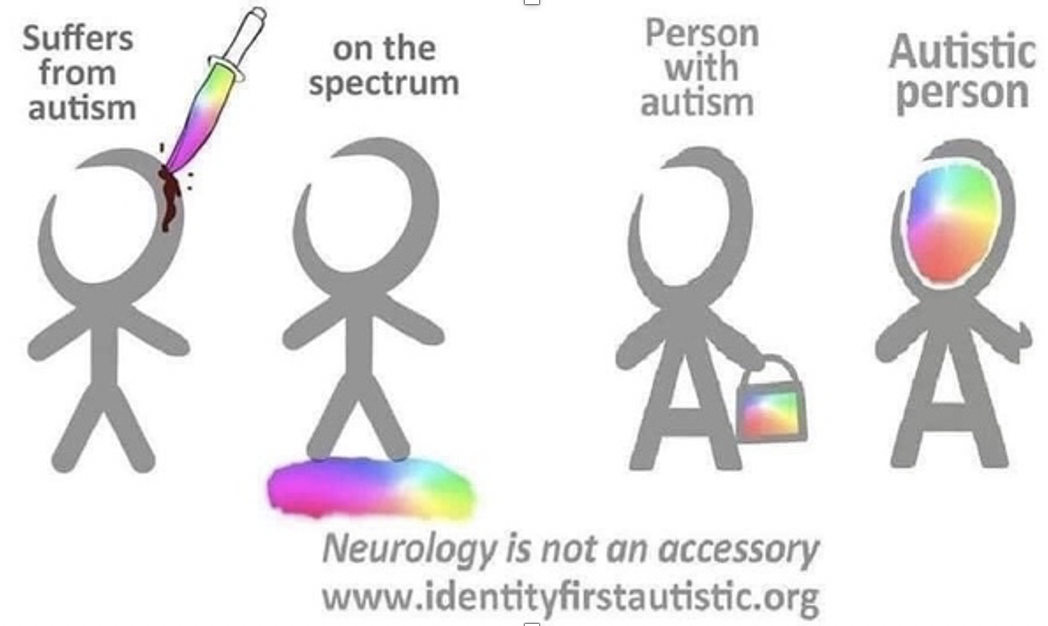xMinds events, resources and services are always FREE |
ABOUT xMINDS: Mission | Leadership | Program Teams | Achievements | Racial Justice | Identity-First | Praise | Newsletters |
xMinds Statement on Person–First v. Identity–First Language
There are many in the disability rights community who believe that person-first language is the most respectful way to refer to individuals who have disabilities. Person-first language, in their view, recognizes individuals as human beings first, and their autism is part, but not all of them.
Many parents of children who have an autism diagnosis also prefer person-first language for their children.
However, within the community of autistic self-advocates, there are many (a majority according to a recent OAR survey) who prefer to put their autism identity first. They explain that their autism is integral to who they are – not something separate from them. Looked at this way, it is similar to how a person might identify herself as a black woman rather than a person with blackness or femaleness.
xMinds respects every individual’s right to choose the identifier they prefer, and will use the preferred identifier for any specific individual. When we refer to individuals in general, we have debated whether to defer to what we perceive to be parents’ preference for person-first language and autistic self-advocates’ preference for identity-first language. Out of deference to the diversity of views on this issue, and until there is a clear consensus within the autism community, xMinds will continue to intentionally use both person-first and identity-first language interchangeably.
Below we have provided links to essays and posts from autistic individuals and others expressing a range of perspectives on identity-first language. We encourage anyone who supports autistic individuals to read through them.
Resources
Writers who prefer identity-first language, such as “autistic person:”
- Essay by Lydia Brown on the website of ASAN, Autism Self-Advocacy Network, the preeminent advocacy organization of autistic individuals in the United States
- Essay by Jim Sinclair, founder of Autism Network International (ANI)
- Blogpost by Gordon Darroch, father of autistic sons
- Essay by Kassianne Sibley, an autistic writer, presenter, and teacher of self-advocacy skills to autistic students
- Website created to promote the acceptance of identity-first language for autism: https://www.identityfirstautistic.org
- A visual supporting identity-first language:

Writers who prefer person-first language, such as “child with autism” or “person on the autism spectrum:”
- Articles by Kathie Snow, author, public speaker, and consultant.
- Guidance from the ADA National Network, a civil rights group for people with disabilities
- NIH Guidance on language asserts that "person on the autism spectrum" is the least polarizing term.
Sources that discuss the relevance of these distinctions in language:
- Post by Molly Calahan in Northeastern University’s newsletter News@Northeastern
- American Psychological Association, APA style guidelines
